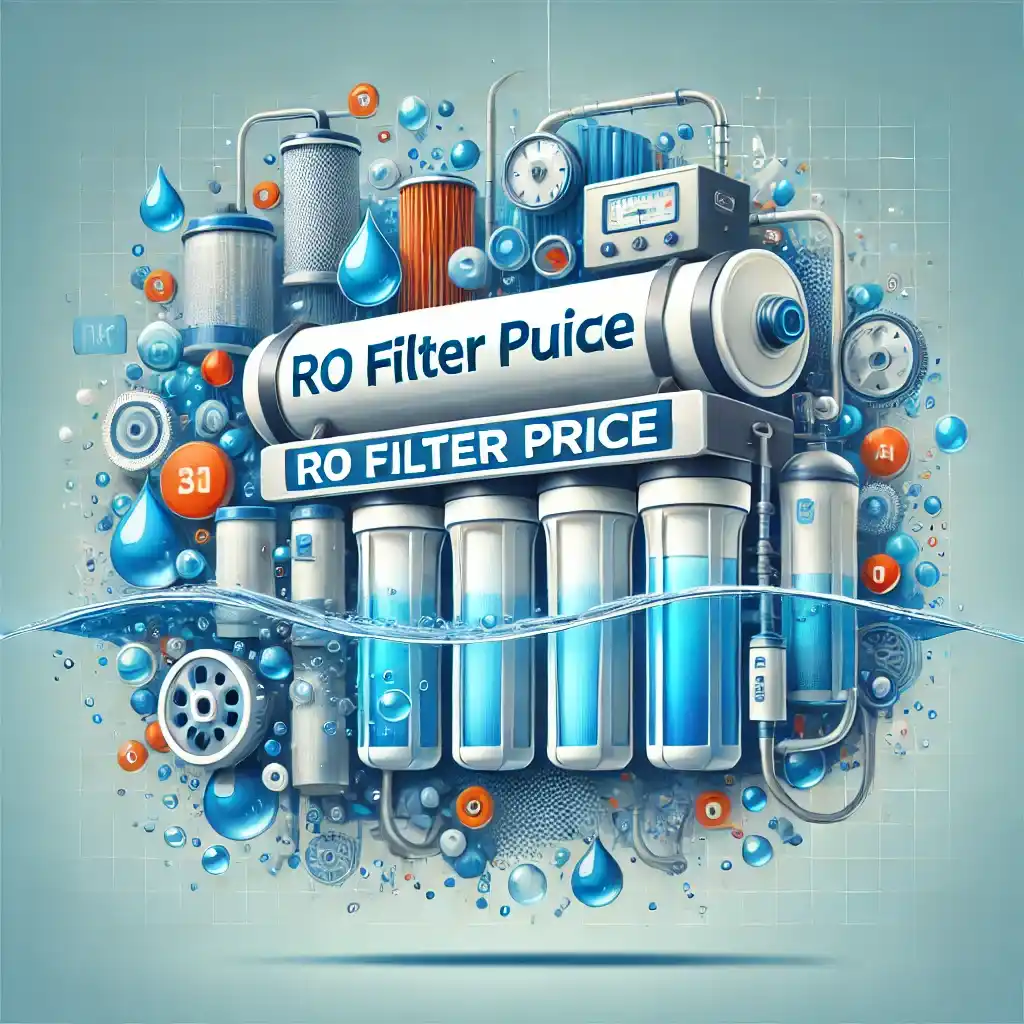

RO Filter Price
When it comes to clean and safe water, understanding the RO filter price is crucial for making the best choice for your needs. Whether you’re looking for domestic or industrial solutions, knowing what drives the cost and which filters are worth your investment can make a world of difference. This guide delves into the key aspects of RO filter pricing, types of filters, and top recommendations to help you decide wisely.
Understanding RO Filter Price: What Determines It?
The price of an RO filter is influenced by several factors:
-
Type of Filter
-
Sediment Filters: Designed to remove dirt, rust, and other particulate matter. These filters are usually economical and serve as the first line of defense.
-
Carbon Filters: Used for removing chlorine, bad odors, and organic compounds. Carbon filters come in two types—Granular Activated Carbon (GAC) and Carbon Block (CTO), which can vary in price based on quality.
-
Membrane Filters: These are the core of any RO system, filtering out dissolved salts, heavy metals, and other impurities. Membranes tend to be pricier due to their critical role.
-
-
Material Quality High-quality polypropylene or advanced carbon materials ensure durability and effective filtration, which can drive up the cost.
-
Size and Capacity Industrial RO filters, such as 20-inch filters, are typically more expensive than their domestic counterparts due to their higher capacity.
-
Brand and Certification Well-known brands and filters with certifications like NSF or ISO standards often command a higher price due to their proven reliability.
Exploring Top RO Filters for Industrial Use
If you are searching for high-quality industrial RO filters, here are some excellent options:
-
-
Specifications: 5-micron filtration, polypropylene material.
-
Ideal For: Removing fine particles and extending the lifespan of subsequent filters.
-
Price Range: Affordable for industrial applications.
-
-
-
Specifications: White polypropylene material, 250 grams.
-
Ideal For: Heavy-duty filtration needs in industrial setups.
-
Price Range: Slightly higher due to its size and weight.
-
-
-
Specifications: Liquid filtration with durable polypropylene.
-
Applications: Suitable for industrial RO systems handling large volumes.
-
Price Range: Competitive, offering value for high-volume users.
-
-
-
Specifications: Imported Granular Activated Carbon.
-
Applications: Effective in removing chlorine and improving water taste.
-
Price Range: Premium due to its efficiency and imported build.
-
-
-
Specifications: Carbon Block technology for enhanced filtration.
-
Applications: Best for polishing water and removing finer impurities.
-
Price Range: Positioned in the higher price bracket for industrial-grade performance.
-
Domestic vs. Industrial RO Filters
While domestic RO filters prioritize affordability and compactness, industrial filters focus on durability and high-capacity performance. The price difference reflects these priorities:
-
Domestic RO Filters:
-
Compact and lightweight.
-
Affordable and easier to replace.
-
Ideal for small households.
-
-
Industrial RO Filters:
-
Larger and designed for heavy usage.
-
Higher price due to superior materials and larger capacity.
-
Suitable for factories, water treatment plants, and commercial establishments.
-
Tips to Choose the Right RO Filter
-
Assess Your Water Quality Test your water for impurities such as TDS (Total Dissolved Solids), hardness, and contaminants. This will help determine whether you need a basic sediment filter or a comprehensive system with multiple stages.
-
Determine Usage
-
For domestic use: Opt for compact filters that suit your family’s daily water needs.
-
For industrial use: Look for high-capacity filters like the 20.45-Inch Spun Filter.
-
-
Compare Prices and Features Use reliable platforms to compare features and prices of various filters. Ensure the filter aligns with your requirements.
-
Choose a Trusted Supplier Reliable suppliers provide authentic products with warranties and certifications. Explore options like the links provided above for trustworthy choices.
The Role of Maintenance in RO Filter Pricing
Regular maintenance can significantly impact the overall cost of ownership. While high-quality filters may have a higher initial price, their durability and efficiency can reduce long-term expenses. Replacing filters on time prevents damage to the RO system and ensures consistent water quality.
Why Invest in Quality RO Filters?
Though the price may seem steep initially, quality filters offer several benefits:
-
Enhanced Water Quality: Ensures clean, safe, and great-tasting water.
-
Longevity: Durable filters reduce frequent replacements.
-
Cost Savings: Prevents costly repairs and extends the lifespan of your RO system.
Final Thoughts
RO filter prices vary widely based on type, material, and application. By understanding your specific needs and evaluating trusted products like the ones linked above, you can find the perfect balance between cost and quality. Investing in the right filter not only guarantees superior water quality but also ensures the longevity of your RO system, making it a worthwhile investment for both domestic and industrial users.
For a closer look at premium RO filters tailored for industrial needs, explore the 20-Inch GAC Filter and 20-Inch CTO Filter.